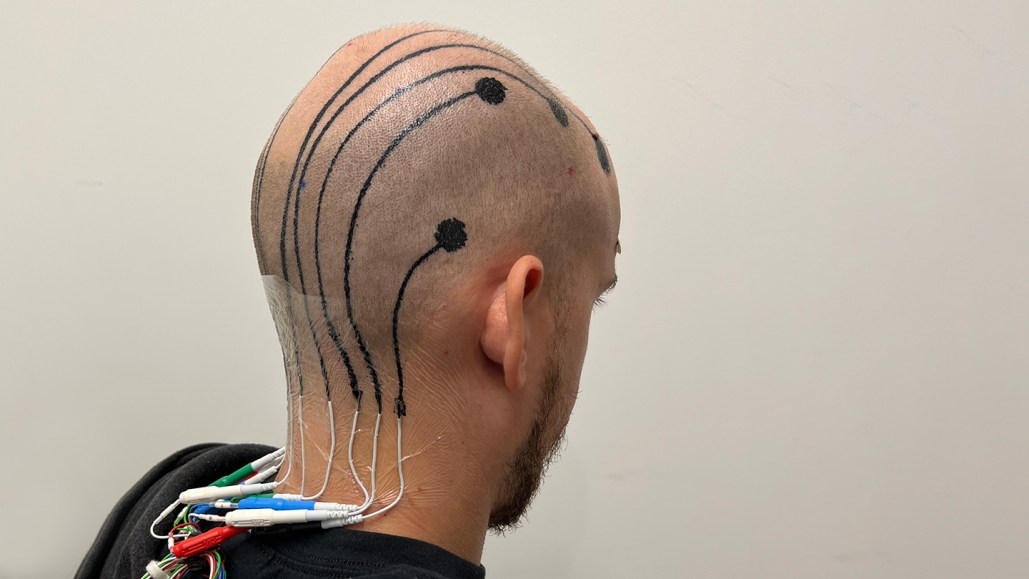Electronic ‘tattoos’ offer an alternative to electrodes for brain monitoring
A spray-on ink detects electrical activity in the brain for hours

Spray-on electrodes go on wet. Once dry, they can detect brain activity about as well as standard electrodes used in a common medical test, researchers find.
Nanshu Lu